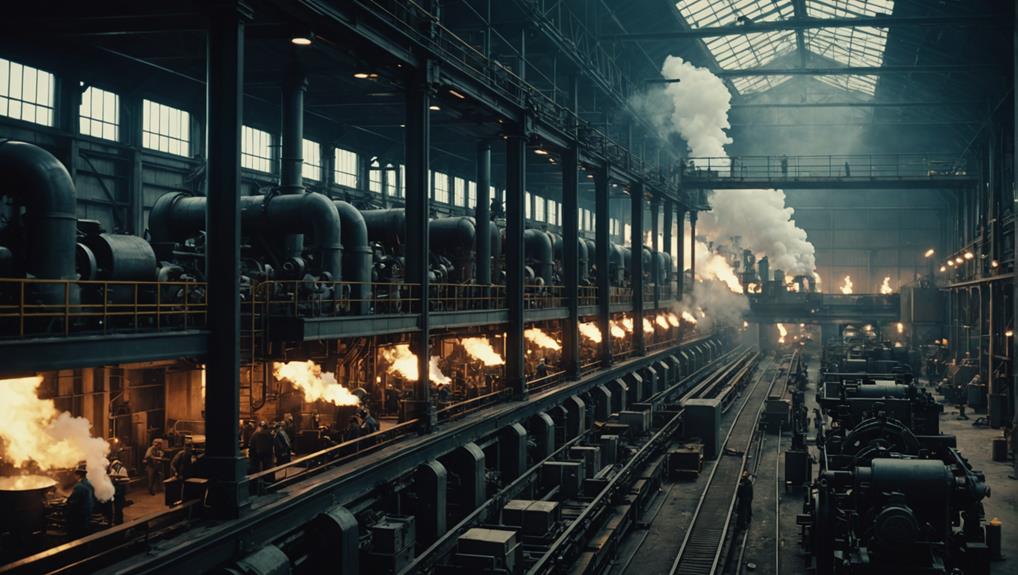The Industrial Revolution was a transformative period marked by significant technological, economic, and social changes. Originating in the late 18th century in Great Britain, it rapidly spread to other parts of Europe and North America, revolutionizing industries such as textiles, iron, and steel production. Innovations like the steam engine, spinning jenny, and power loom dramatically increased productivity, while the development of railways and steamships enhanced transportation and global trade. However, this era also brought about profound social changes, including urbanization, the rise of a distinct working class, and challenging labor conditions, which spurred various social and labor reform movements.
The global impact of the Industrial Revolution extended beyond the industrialized nations, influencing colonial expansion, resource exploitation, and global trade patterns. It led to significant environmental degradation, including air and water pollution, deforestation, and resource depletion. Criticisms and counter-movements emerged, such as the Luddite movement, labor unions, and intellectual critiques from figures like Karl Marx and Friedrich Engels. These movements advocated for better working conditions, public health reforms, and social justice, shaping the modern landscape of labor rights and environmental awareness.
Read more to explore the detailed history and profound impacts of the Industrial Revolution.

